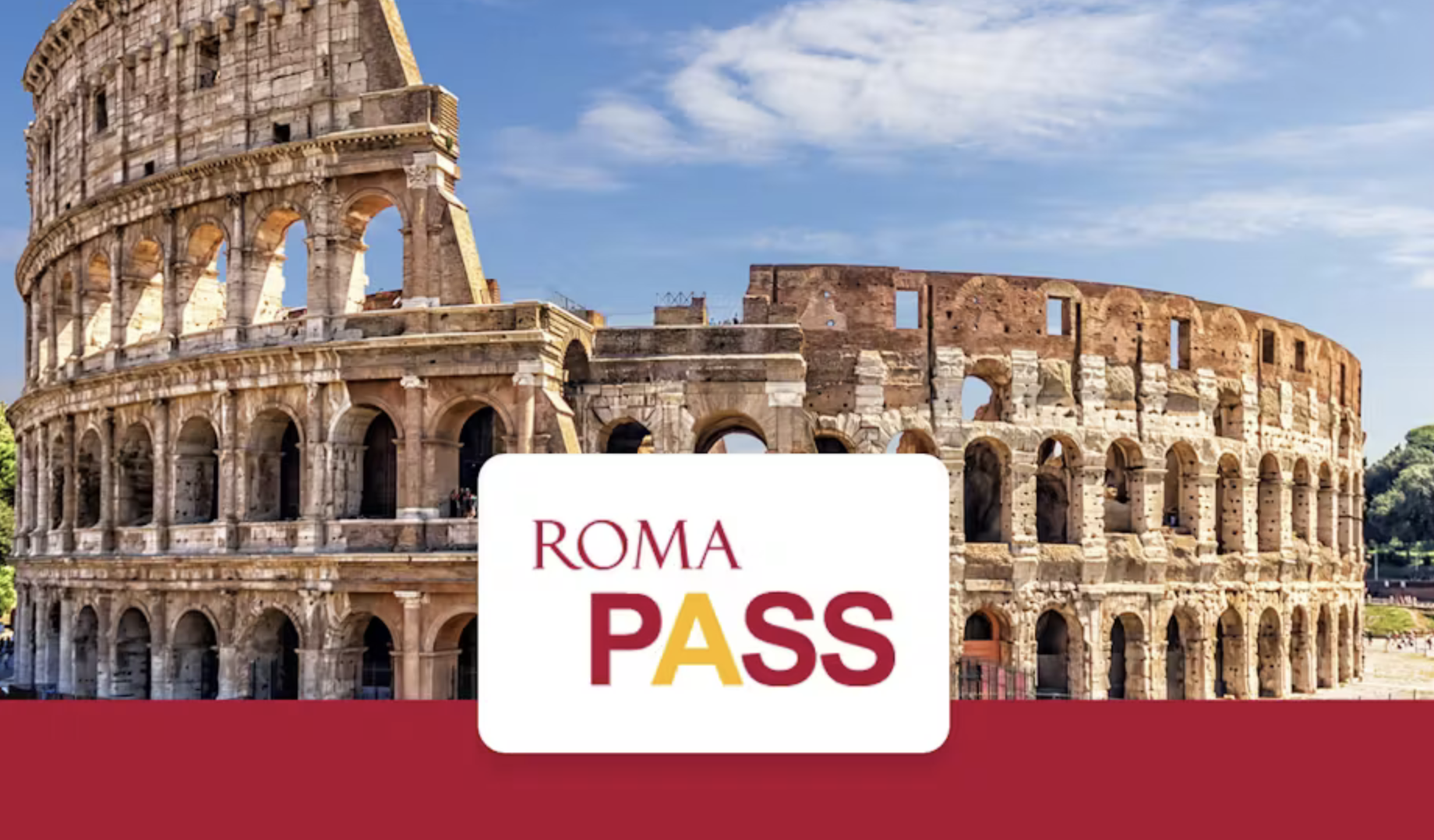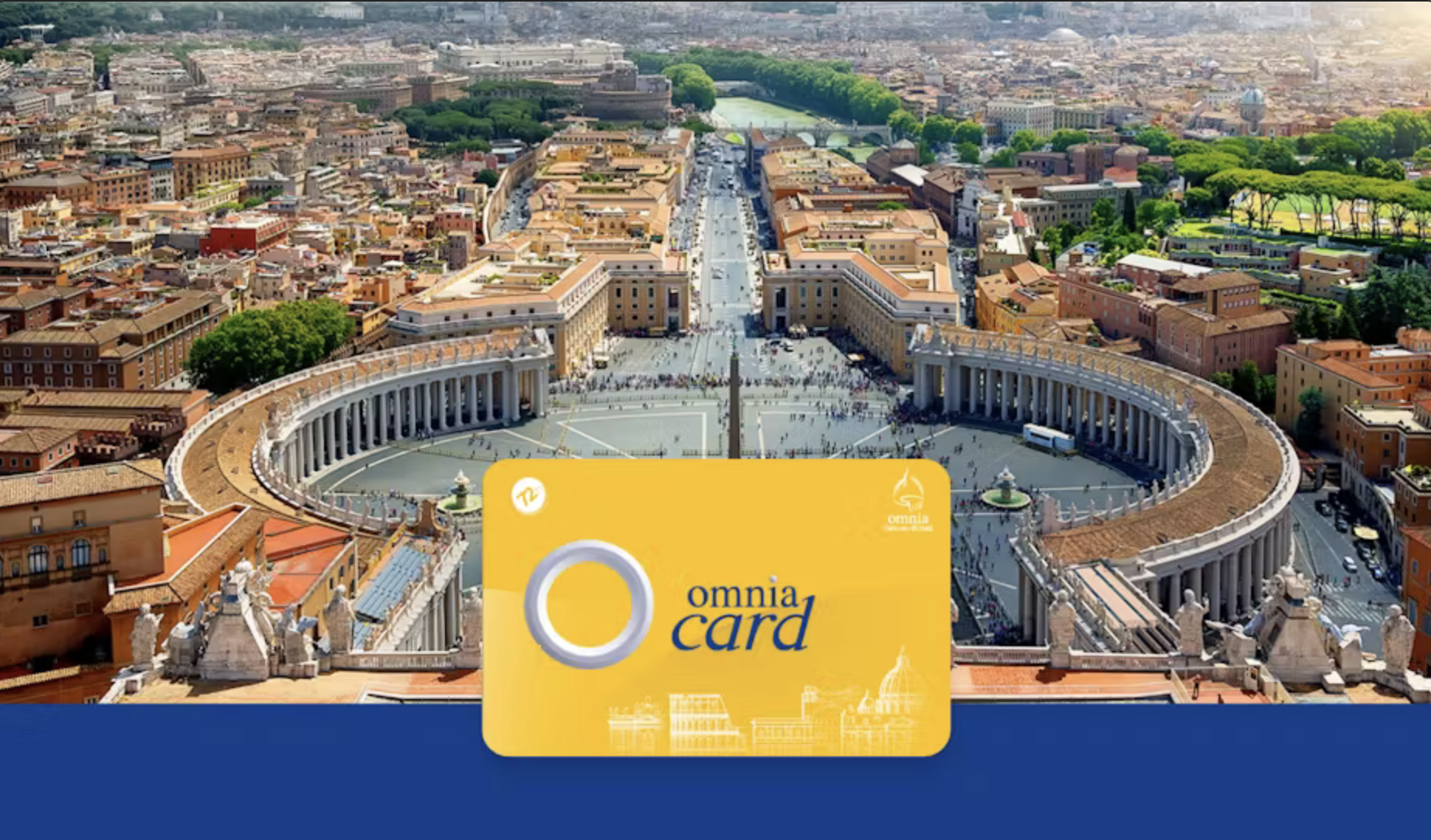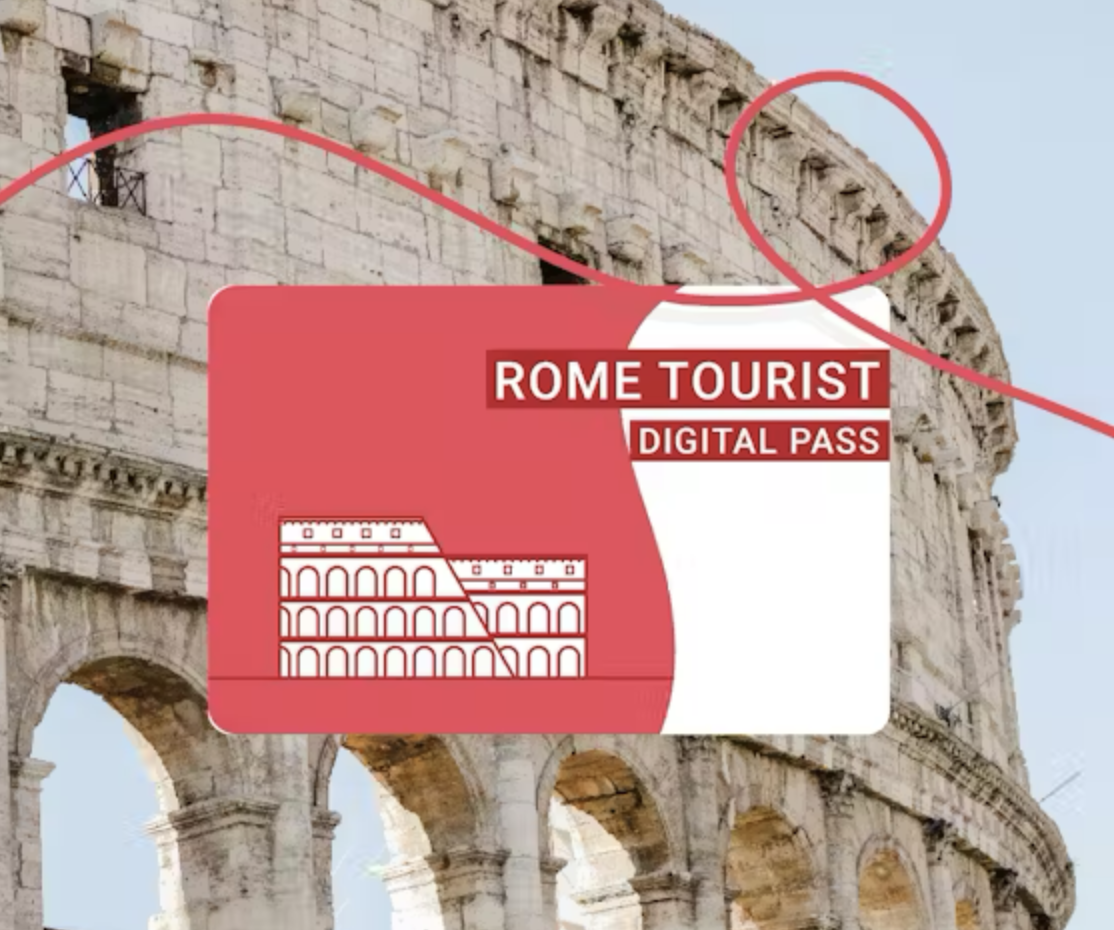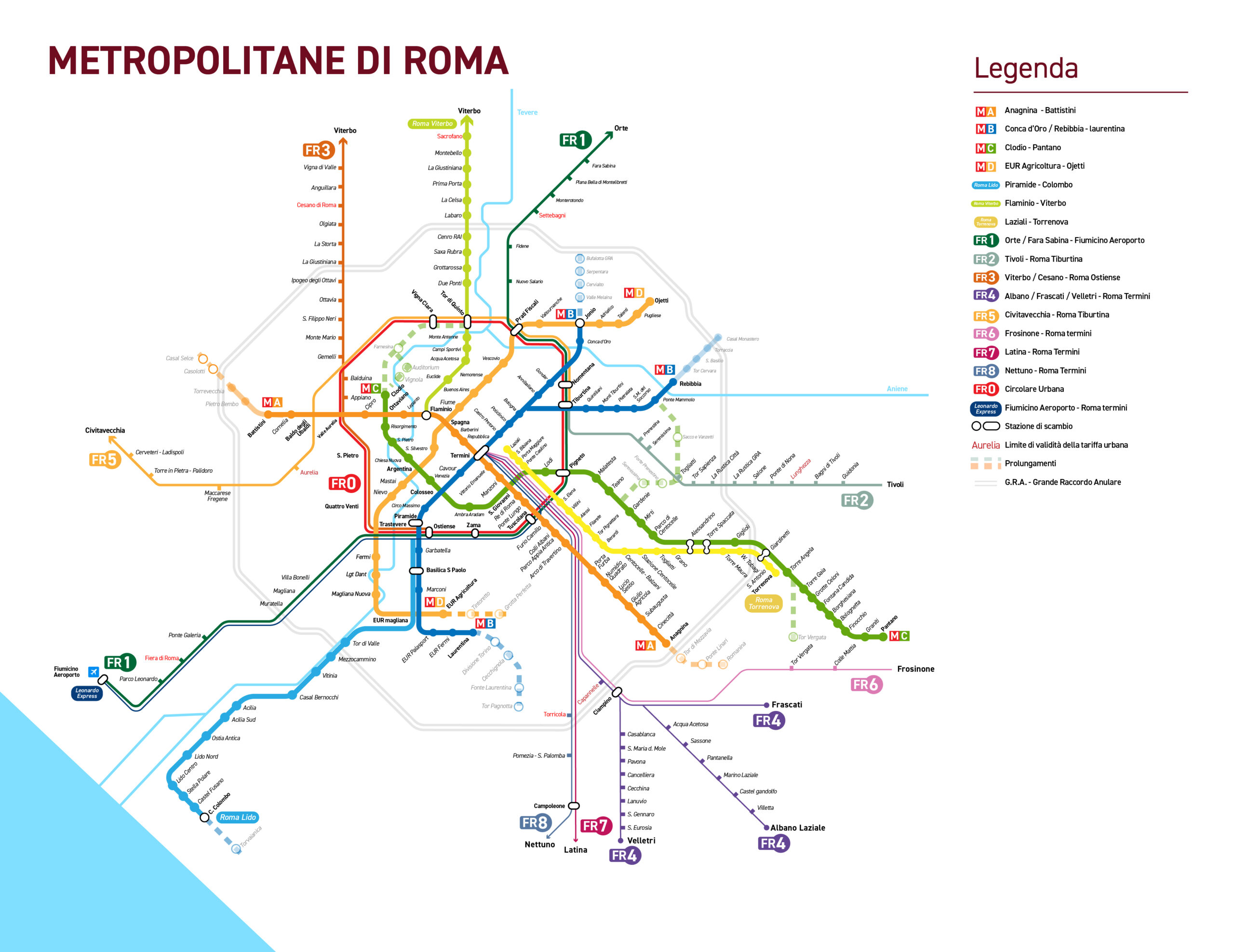Do you want to visit Italy but aren't ...
Public Transport and Metro in Rome: Fares, Tickets & Tips
Guide to Rome Transportation, Routes, and Tickets Available for Locals and Travellers in Rome.
Which City Pass is worthwhile for Travelers in Rome?
Best City Cards Options
A Rome city pass is a practical choice for travelers who want to make the most of their stay. It grants free or discounted access to many of the city’s top landmarks and cultural experiences—some even include public transportation.
To help you choose the right one, see the Comparison Table for City Pass Options below:
ROMA PASS | ROME CITY PASS BY MEGAPASS | GO CITY EXPLORER | OMNIA PASS | ROME TOURIST CARD | |
|---|---|---|---|---|---|
CITY PASSES |  |  |  |  |  |
NUMBER OF ATTRACTIONS | 1 or 2 main + 45 discounted museums/sites | 4 top attractions + 2 (Premium) or 4 (Deluxe) extra experiences | 2 to 7 attractions of your choice from a list of 20+ | 3 main attractions + access to 30+ museums (Roma Pass), Vatican sites, + Hop-On Hop-Off Bus | 4 major attractions |
TOP- ATTRACTIONS | Colosseum, Capitoline Museums, | Colosseum with Arena, Vatican Museums & Sistine Chapel, Pantheon, Hop-On Hop-Off Bus | Pantheon, Colosseum, Leonardo da Vinci Museum, | Vatican Museums, | Colosseum, Forum Romanum, Pantheon, Castel Sant'Angelo, or St. Peter's Dome |
STANDOUT | None | 1 GB internet data, Audio guides, Flexible attraction selection | 1-Hour Pizza-Cooking Experience, | 2 Passes in one; | None |
PASS DURATION | 48 or 72 Hours | Valid for 14 days | 48 or 72 Hours | 72 Hours | 7 Days |
DELIVERY METHOD | Physical Card | Digital Pass | Digital Pass (Email/App) | Physical Card | Digital Pass (Email) |
PUBLIC TRANSPORT | |||||
PRICE FOR ADULTS | From €56 | From €129 | From €89 | From €149 | From €98 |
How Does Public Transportation Work in Rome?
Travellers can easily use Rome's public transit system thanks to the number of payment methods offered. Those who prefer conventional means can purchase tickets and passes at ATAC ticket offices located across the city. Tickets are also available for purchase on the go at authorised stores linked with the transit network, such as newsagents, tobacconists, and pubs.
Furthermore, many UniCredit ATMs in Rome and its environs may distribute public transportation tickets, combining banking and travel services. Also, apps such as Tap&Go, DropTicket, MooneyGo, TicketAppy, Tabnet, and TelepassPay let consumers purchase and validate tickets straight from their smartphones, bringing ease and efficiency to the transaction.
These applications cater to a variety of tastes, from the simplicity of Tap&Go's contactless card payments to the complete features provided by TelepassPay. With these many alternatives, Rome guarantees that both inhabitants and visitors may easily travel the city, using the payment method that best meets their own requirements and preferences.

Public Transportation Network Options in Rome
Rome's public transportation system is a complicated web of numerous kinds of transportation intended to get about the huge metropolis.
From the Metro's underground veins to the surface-level arteries of buses and trams, each mode provides a distinct approach to explore the Eternal City.
Whether you're speeding through the city center or exploring its outskirts, Rome's transit system combines the old and contemporary, transporting both citizens and tourists across its historic environment.

Airport Transfer Options in Rome
Rome, the eternal city, provides a variety of airport transportation alternatives from its two major airports: Leonardo da Vinci-Fiumicino International Airport (FCO), about 30 kilometers from the city centre, and Giovan Battista Pastine International Airport (CIA), which is closer to the city. To meet the demands of travellers, each airport offers unique transportation options.
From Leonardo da Vinci–Fiumicino International Airport (FCO)
From Giovan Battista Pastine International Airport (CIA)
Which Public Transport Cards are Available in Rome
Here is an Overview of the Public Transport Cards in Rome.
- 1BIT (Biglietto Integrato a Tempo): A single-use ticket that is good for 100 minutes after validation and allows you to transfer between buses, trams, and the metro within that time frame. It is available for purchase at ATAC ticket offices, authorised retail locations, and vending machines. The BIT ticket is suitable for making short travels throughout the city.
- 2Roma 24H, 48H, and 72H: These time-based tickets provide unrestricted travel during the stated hours from the moment of validation. They are accessible at ATAC ticket offices, vending machines, and certain news agencies. The 24H, 48H, and 72H tickets are designed for guests who want to utilise public transportation frequently over many days.
- 3CIS (Carta Integrata Settimanale): A weekly ticket that allows for unrestricted travel on buses, trams, metros, and urban trains. It is valid for seven days from the date of validation and may be obtained at ATAC ticket offices and authorised retailers. This pass is appropriate for individuals who remain in Rome for a lengthy period.
- 4Roma Pass: This tourist card provides unlimited public transportation and free or cheap admission to a variety of sites. It is available in 48-hour and 72-hour variants and may be purchased online or via municipal tourism offices. The Roma Pass is an excellent deal for those who want to visit many locations.
- 5Metrebus Card: A rechargeable card that may be filled with a variety of tickets, including those listed above. It is offered at ATAC ticket offices and might be a useful choice for regular travellers.

Rome Public Transport App
Rome offers a public transportation app called TicketAppy, which is the official app of the Rome Transport Authority ATAC. This software allows you to purchase and validate metro and bus tickets right from your phone.
It's a useful service for both residents and tourists, offering a simple method to manage your travel tickets without the need for actual ones. The ATAC official website provides further information and allows you to download the app.
Other applications, such as Moovit and Roma Mobilità, provide route planning and real-time information on Rome's public transit system. These applications can be quite beneficial for effectively navigating the city.
- 1Monthly Ticket: The ticket is valid on all public transport in Prague and costs the equivalent of about 22 euros.
- 2Three-Month, Five-Month, and Annual Pass: For all lines of the Prague Public Transport Company, the three-month pass costs 1,480 Czech crowns, about 55 euros, the five-month pass costs 2,450 Czech crowns, about 90 euros and the annual pass costs 3,650 Czech crowns, about 140 euros.
- 3Reduced Tickets: These include youth tickets, senior tickets, semester tickets, and tax-deductible company tickets.
Rome Public Transport Network Details
Rome Public Transport Network Details with Maps
- 1Metro: Rome's Metro has three lines: A (orange), B (blue), and C (green), with a normal ticket costing €1.50 and good for 100 minutes. Trains operate from 5:30 a.m. to 11:30 p.m.
- 2Tram: The tram network has six lines and operates from 5:30 a.m. to midnight, offering a pleasant trip with the same ticketing system as the Metro.
- 3Train: Regional trains connect Rome to other Italian towns, with the Leonardo Express train providing nonstop service from Fiumicino Airport to Termini Station for €14.
- 4High-Speed Train: Services such as Frecciarossa and Italo link Rome to major cities around Italy, with rates ranging according to distance and booking time.
- 5Taxi & Uber: Taxis in Rome have a fixed fee for some routes, such as from Fiumicino Airport to central Rome for around €48, but Uber only offers premium services like Uber Black, which are often more expensive than taxis.
- 6Public Buses: Buses are a popular means of transportation in Rome, and a single ticket costs €1.50 for 100 minutes of travel. Buses are useful for getting to locations not served by the Metro, particularly in the historic centre.
Tip: When taking public transit in Rome, always verify your ticket before boarding to avoid fines, and consider getting a day or multi-day pass for unrestricted travel if you want to explore extensively.
Faq
- ATAC operates Rome's public transportation, which includes buses, trams, the metro, and regional trains.
- It is a unified system in which a single ticket may be used for several means of transportation around the city.
- Tickets may be purchased from a variety of places and must be validated at the beginning of your ride.
- The system is meant to be handy for both citizens and tourists, giving comprehensive coverage of the city and its surroundings.
Rome's public transportation system has a single fee zone for buses, trams, metros, and urban trains, making it simple to travel without worrying about multiple payment rates.
This unified method enables easy transfers between various types of transportation inside Rome using the same ticket.
Rome provides special tickets for tourists, such as the Roma Pass, which combines free public transportation and cheap admission to numerous sites. There's also the Rome Tourist Card, which offers skip-the-line access and other savings, making touring more accessible and affordable.
Yes, in Rome, you may use the same "Metrebus" ticket for bus, tram, and metro travels across the city, providing for smooth transitions between modes of transportation.
Using public transit in Rome is typically secure, but as with any large tourist destination, be wary of pickpockets. They are known to operate on congested buses and metro lines, frequently utilising distraction methods to steal from people.
In Rome, bus tickets must be purchased in advance from authorised sales places like tabacchi stores, news agencies, or mobile applications, as they cannot be purchased on the bus.
In Rome, you can pay for the metro by purchasing tickets at stations, news agencies, or corner stores, and you can choose between single rides or numerous travel cards.
Yes, you can transport bags on the Rome Metro. You are permitted to carry one piece of baggage for free, as long as it is no larger than 50x30x25 cm. If your luggage exceeds these dimensions, you must purchase an extra ticket; luggage greater than 80x45x25 cm is not permitted on the metro.
